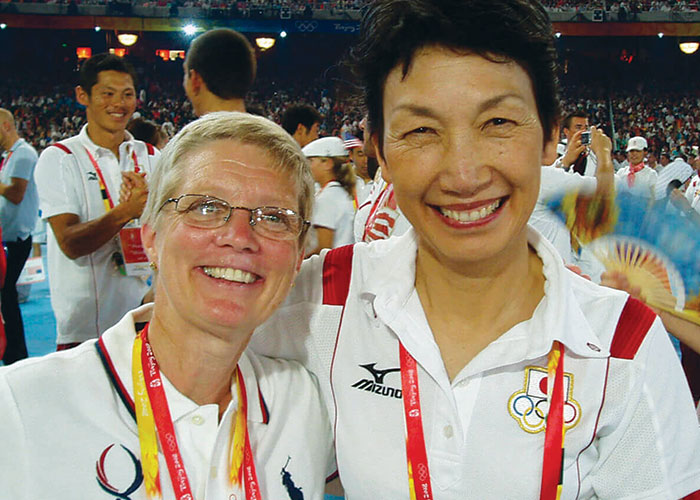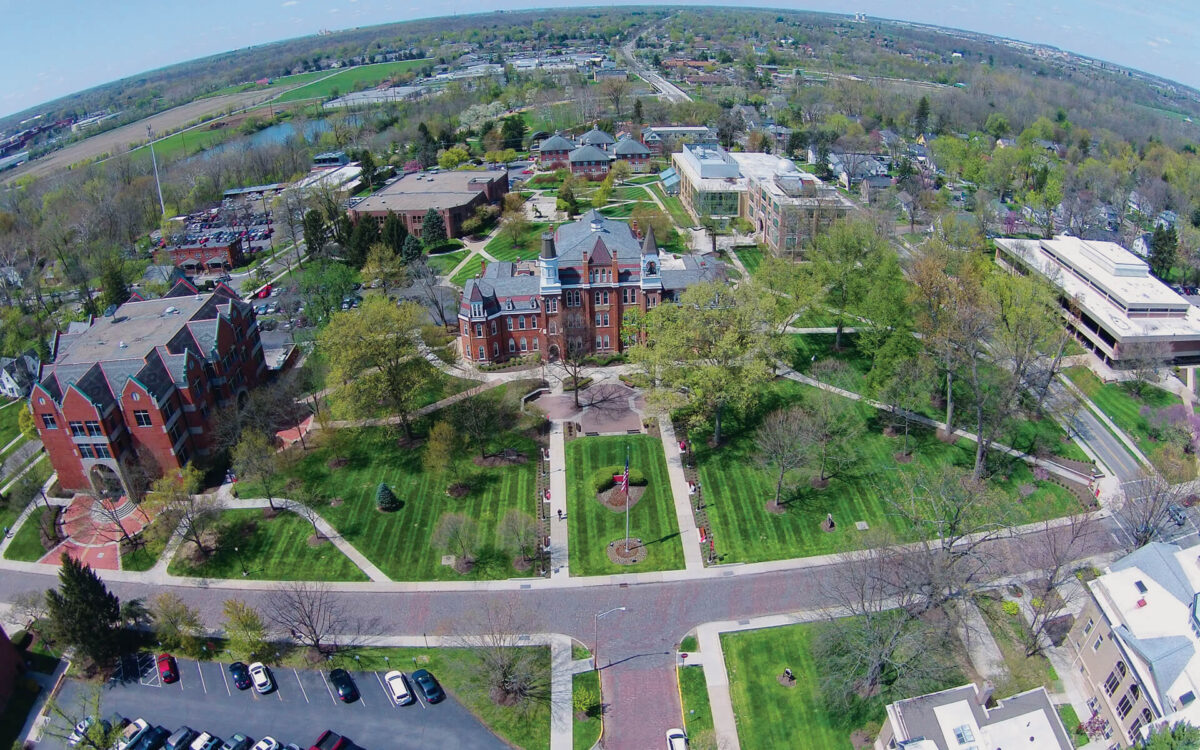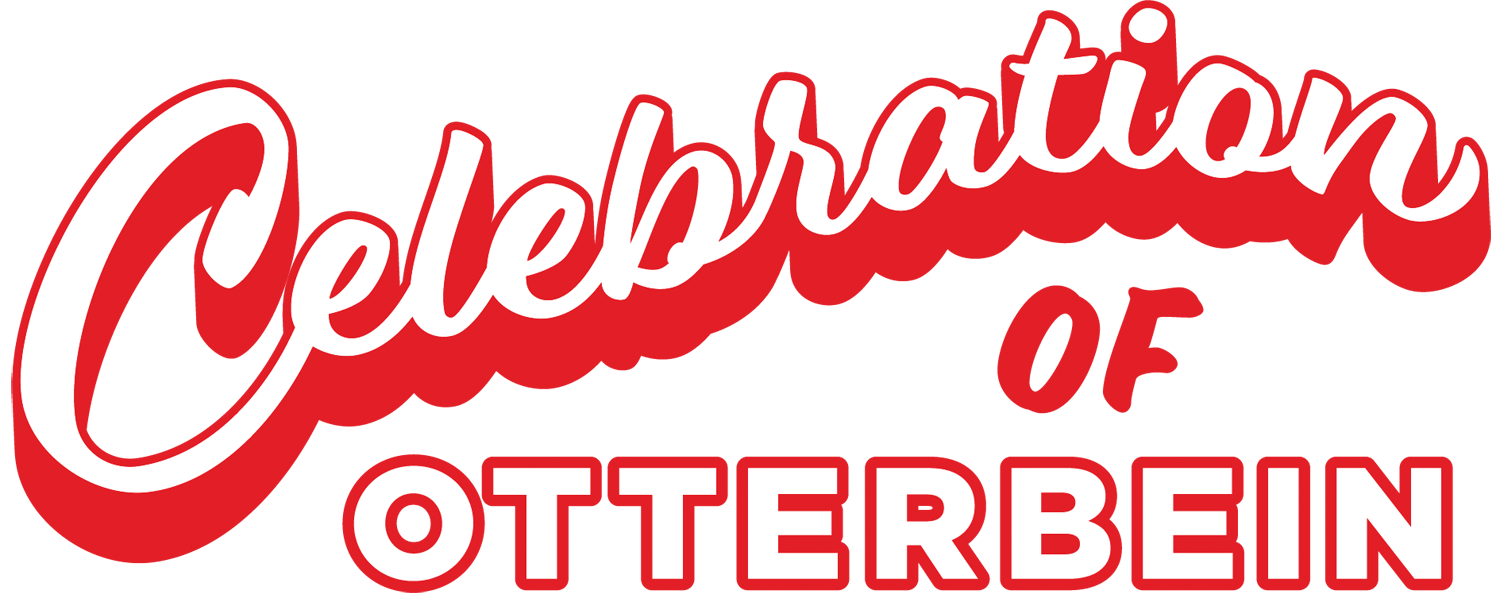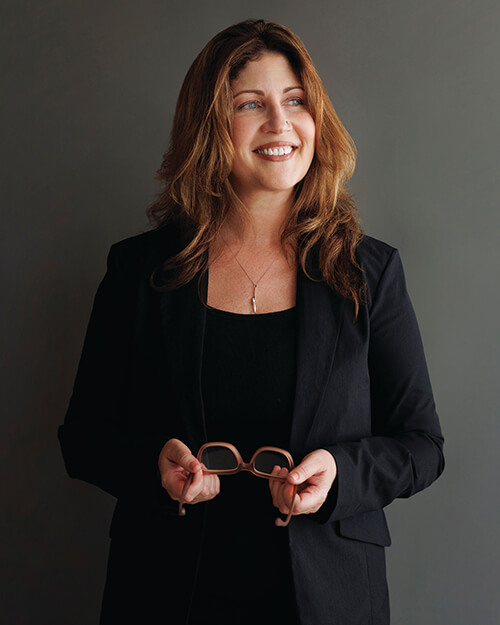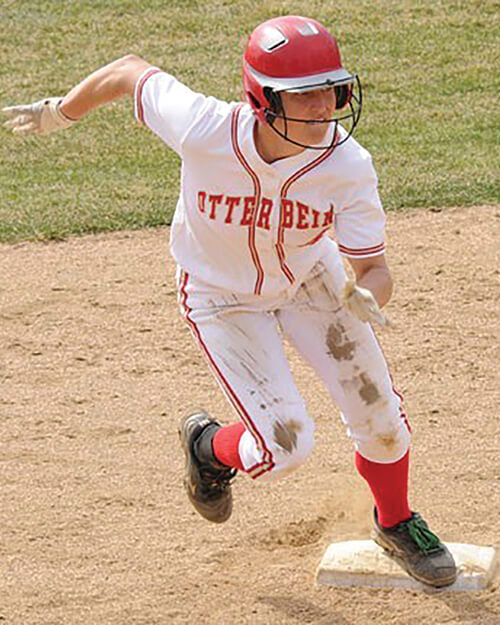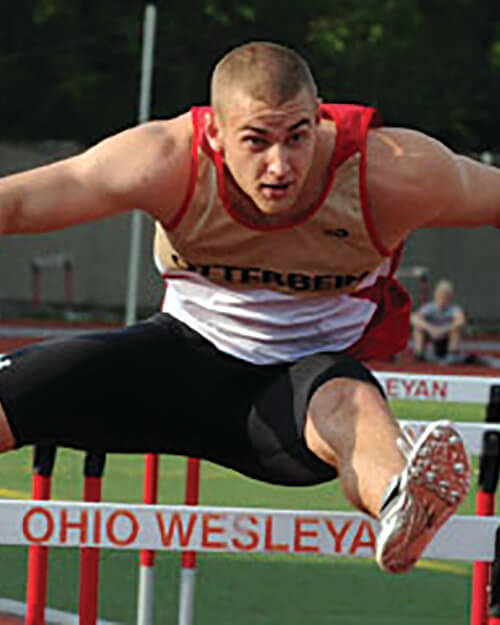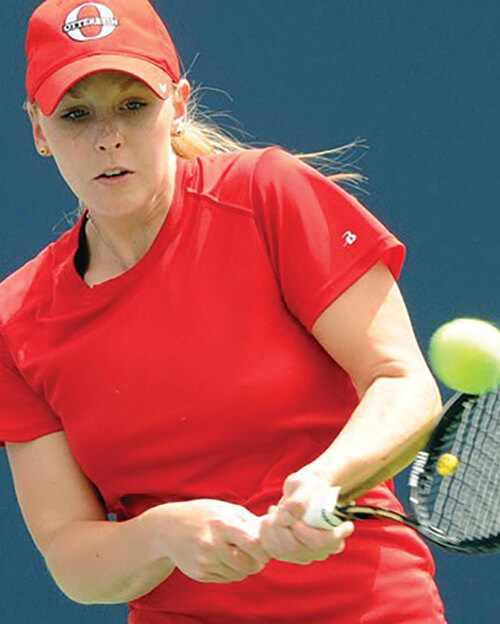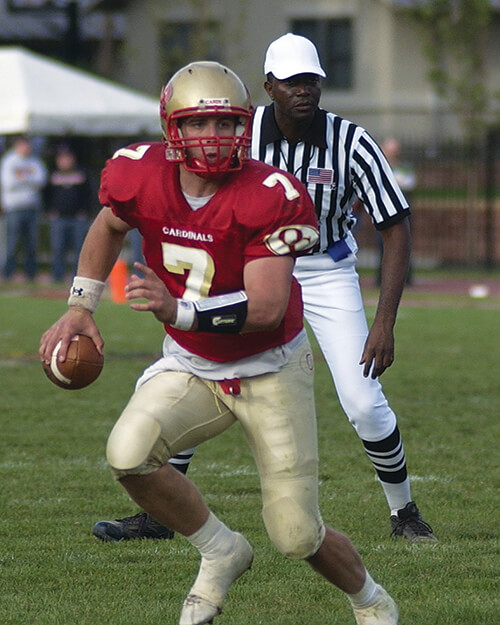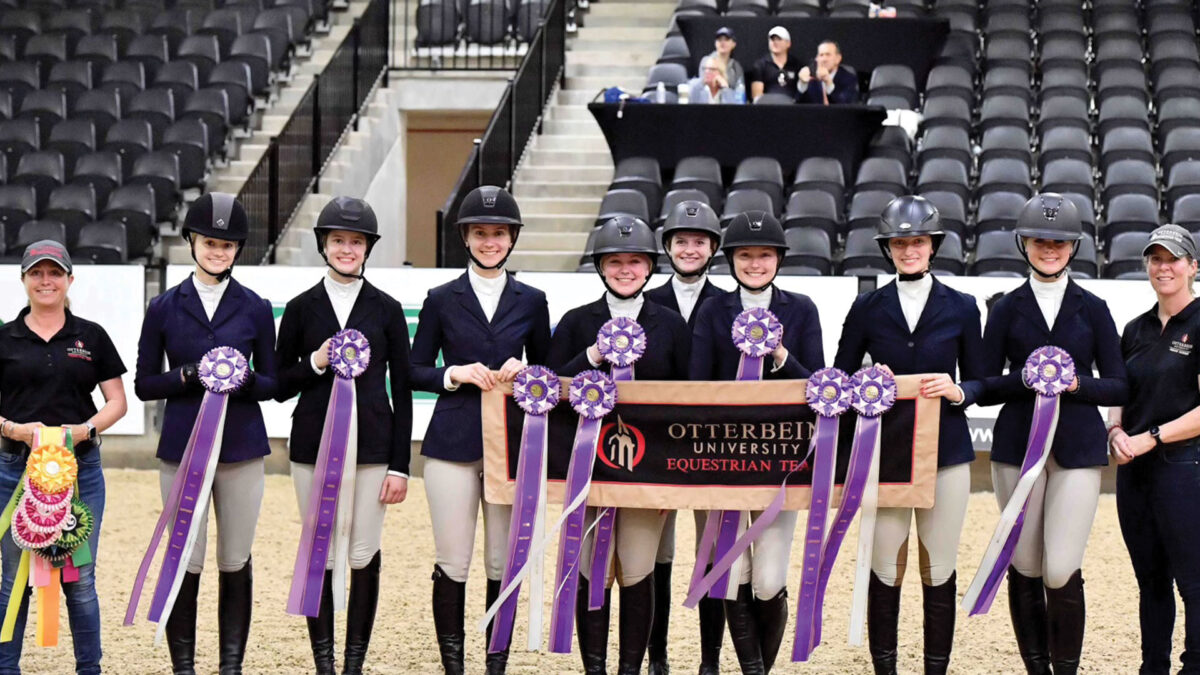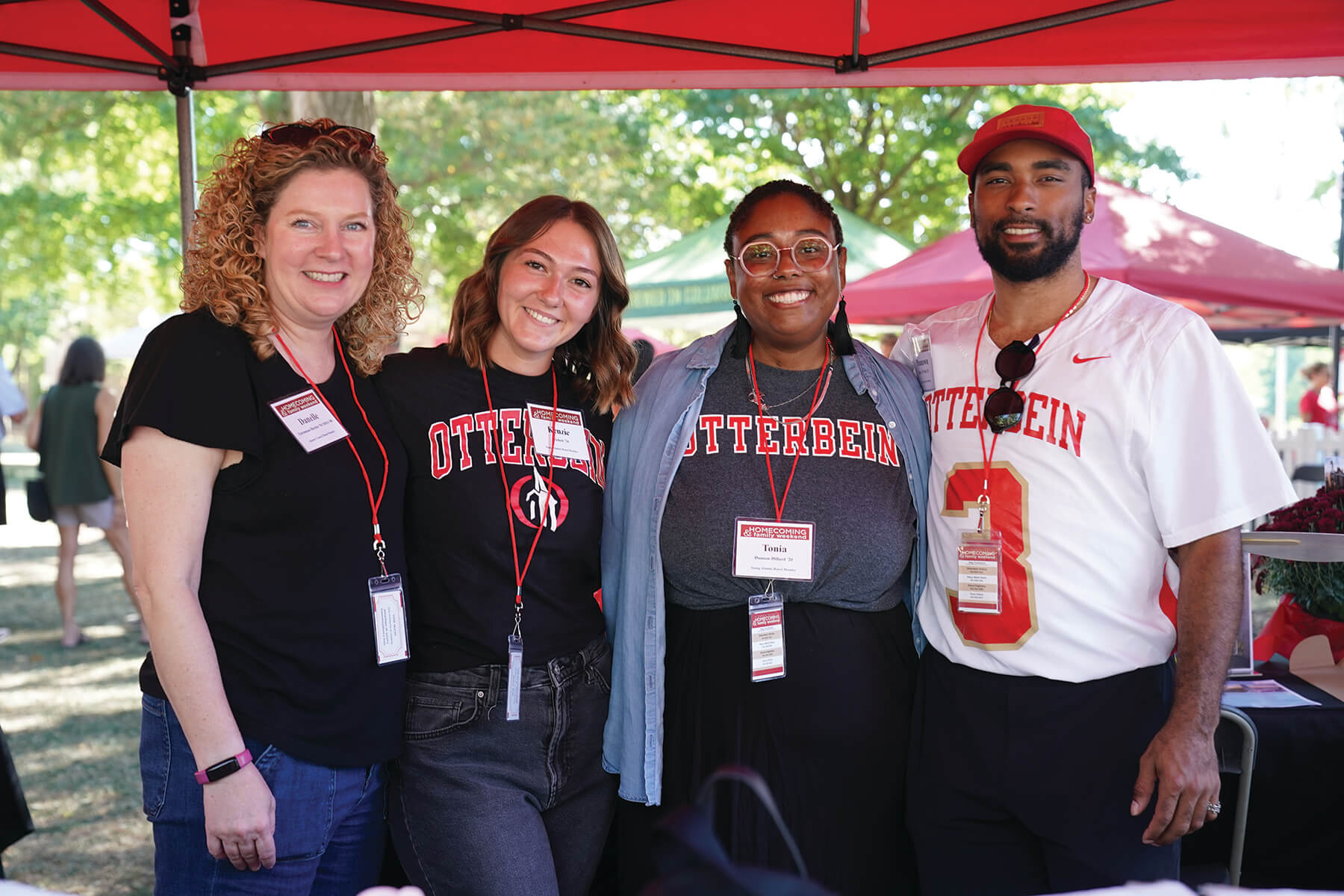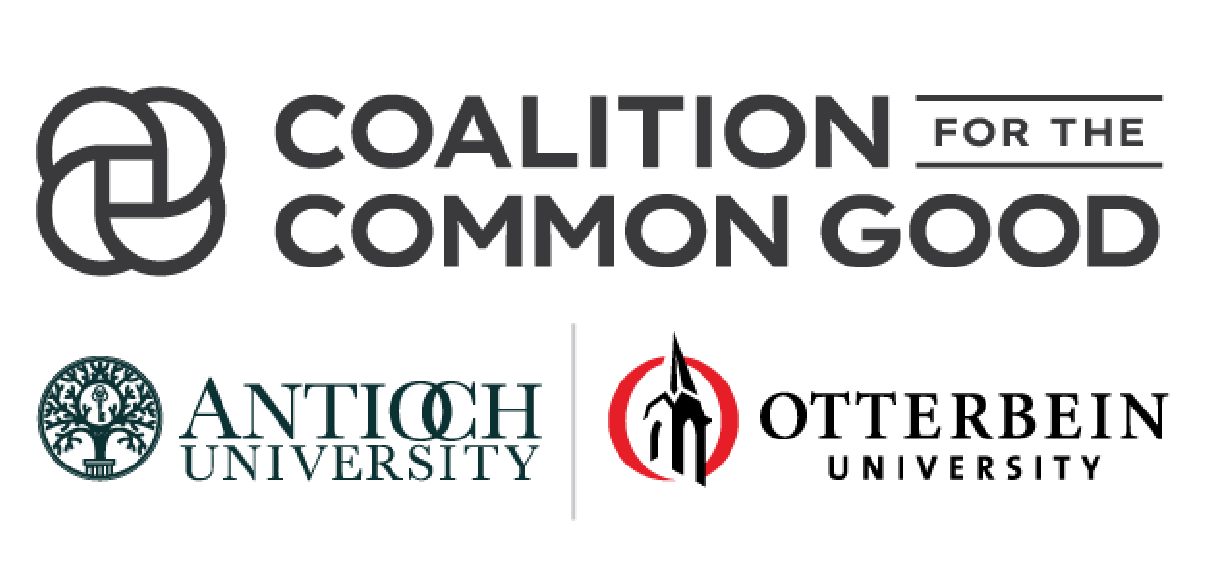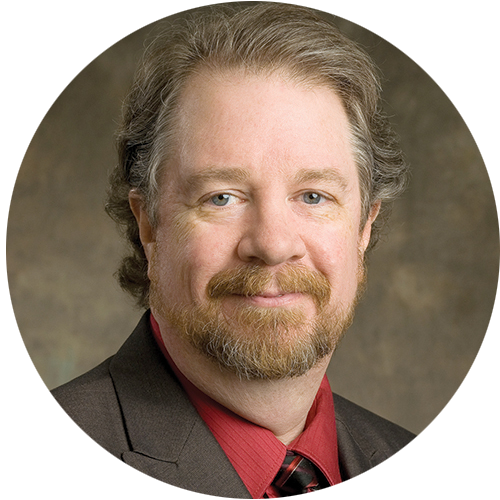Celebrating Otterbein’s Historic Leadership
William “Eddie” Harrell Jr. ’94
Alumnus, Media Executive, Servant Leader, and Otterbein’s First Black Board Chair
William (Eddie) Harrell Jr. ’94 has been committed to improving the lives of others throughout his career and through his service and civic engagement. He serves as the regional vice president of all Radio One markets in Ohio, including Cincinnati, Cleveland, and Columbus. He also has extensive experience leading civic organizations focused on diversity and inclusion, including I KNOW I CAN and Project GRAD Columbus, the Columbus Urban League, and the Ohio Civil Rights Commission.
Now, this accomplished alumnus and professional will continue his commitment to making meaningful contributions to the current and future students of his alma mater as he begins his tenure as the chair of the Otterbein Board of Trustees. Serving on the University’s board since 2007, Harrell is poised to make history at Otterbein as the first person of color to serve as the chair alongside Vice Chair Theresa Harris, the first Black woman to serve in that role.
Q&A with William “Eddie” Harrell Jr. ’94:
Q&A with William “Eddie” Harrell Jr. ’94:
How did Otterbein prepare you for your career?
Otterbein provided a strong foundation of critical thinking throughout the curriculum. The Integrative Studies classes provided a broad range of topics to indulge in, and the business classes were integral in shaping my understanding of business and commerce. Socially, Otterbein helped me engage with students and faculty from various backgrounds and walks of life. This has been very important to my development as a business executive.
Why are you serving on Otterbein’s Board of Trustees?
Otterbein has given me so much that it feels natural to stay engaged as Otterbein continues to be a beacon of hope and opportunity in the lives of students. Everywhere I go, I try to weave Otterbein into the conversation. It is easy to talk about something you love.
What challenges are facing higher education, and how is Otterbein addressing them?
The affordability of higher education remains a challenge across the board. The administration of Otterbein is working hard to fundraise, control expenses where possible, and model our financial aid to keep Otterbein affordable for generations of families to come. We are particularly committed to remaining an institution of opportunity for first-generation college students and students of color.
Another challenge is ensuring we are graduating students that are prepared for post-graduate institutions and industries that will be in-demand over the next couple decades. One way we are doing this is the development of the Coalition for the Common Good. I would encourage all alumni to learn more about this effort, as it allows us to focus on what we do best.
Describe your leadership style and how you will apply it to your board leadership.
I would describe my leadership style as level-headed, collaborative, and engaging. We have an incredible board with a governance model that includes students, faculty, and alumni. I will continue to rely on the board to make sound decisions to provide our students with a world-class experience.
What areas of opportunity do you see for Otterbein?
We must continue to improve our physical plant and infrastructure. To remain competitive, we need to consistently improve our facilities to ensure our students have an environment that is conducive to living and learning. The Campus Center is an example. The upgrades we are making to that facility are going to benefit students for years to come.
What are your priorities as Board Chair?
Remain student-focused on decisions we make as a board. Ensure we are making fiscal decisions that set up Otterbein for long-term viability and success. Strengthen our position in the undergraduate market as we leverage our efforts within the Coalition for the Common Good.
Why did you choose to attend Otterbein?
When I visited Otterbein as a high school senior, it felt like home. I can recall the night before making a final choice of where to attend, I received a call from (Associate Director of Admission) Jeanne Talley. It was her personal touch and care for my well-being that made the ultimate difference.
What was your major and what extracurriculars were you involved in?
Business Administration with a Minor in Sociology. I was active in the African American Student Union, Otterbein University Gospel Choir, and joined Iota Phi Theta Fraternity, Inc.
What were your fondest memories of your time at Otterbein?
I had a great experience at Otterbein, so there are many to choose from. From having Thanksgiving Dinner at President Devore’s home, to playing in the championship game of the intramural football league – the great times were numerous. Ultimately, I was part of a community that was nurturing, insightful, and valuable, both personally and professionally. The fondest memory was my father and I embracing and crying together at commencement. My parents were very supportive of my educational pursuits, so it was gratifying to pay them back by completing my undergraduate education at Otterbein.
Were there faculty or staff members who had a particular impact on you?
Jeanne Talley, who worked in Admission, was part of my inspiration to attend Otterbein. Throughout my time at Otterbein, she consistently checked in to make sure I was doing what was expected of me along the way. She held me accountable, which was like having a second mom right there on campus.
What do you think is special or different about Otterbein graduates?
Otterbein graduates understand the importance of service. The education we receive at Otterbein is top notch, yet it is the commitment of service to others that sets us apart.
Otterbein’s First Female Board Chair Retires
Cheryl Herbert, Chair of the Board of Trustees
After 14 years of service to the Otterbein University Board of Trustees, with three of those as chair, Cheryl Herbert is retiring. She holds a significant place in Otterbein’s history, not only breaking barriers as the board’s first female chair, but also leading the University through the creation of the Coalition for the Common Good.
“It was a great honor to be elected as Board Chair at Otterbein, following in the footsteps of wonderful leaders that came before me,” she said, sharing credit for Otterbein’s continuing success with her predecessors.
President John Comerford praised Herbert for the progress Otterbein has made under her leadership. “Cheryl Herbert has been an engaged and forward-thinking leader, strengthening Otterbein’s position by focusing on its future stability and growth. Her ability to assess higher education trends and forecasts has allowed us to make smart moves that will continue to impact generations of students to come,” he said.
Herbert brought executive vision to the board, drawing from her experience as a senior vice president at OhioHealth who started her career as a nurse over 40 years ago. She also understands the value of a private university education, having earned her bachelor’s degree from Capital University and master’s degree in business administration from Ashland University.
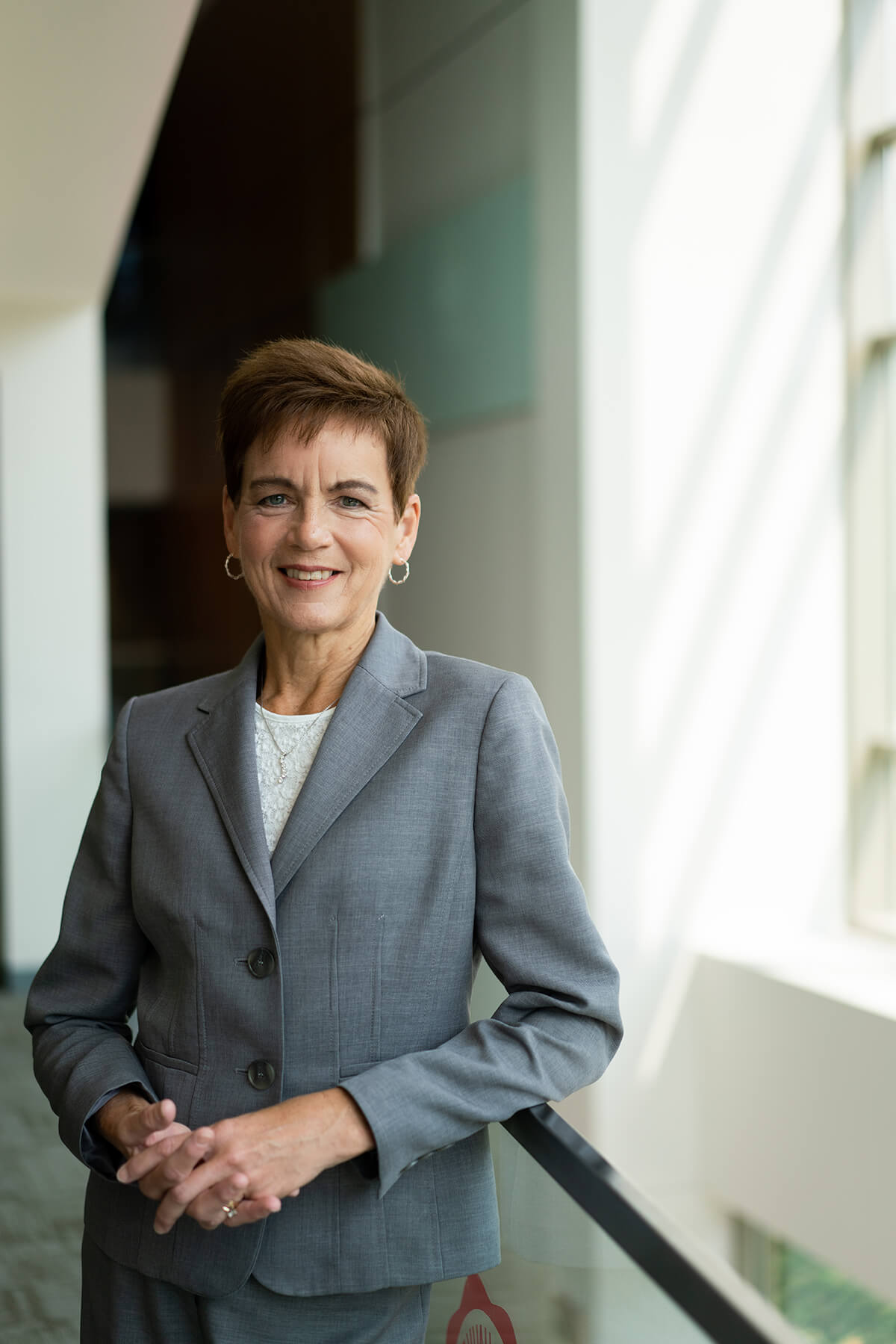
Her background has given her insight into the need for an industry to innovate over time. “Higher education is going through significant changes and challenges. The Board and I wanted to ensure we faced those head on and positioned Otterbein for success well into the future,” she said.
That’s why her proudest achievement as board chair is an innovative partnership that addresses those challenges in a bold, new way – the Coalition for the Common Good, which Otterbein founded with Antioch University.
Although she is retiring from the Otterbein Board of Trustees, the University has impressed Herbert in ways that she will carry with her.
“Otterbein is unwavering in its commitment to affordable and accessible education for all. Faculty, staff and administration are steadfast in their dedication to the goal of graduating outstanding citizens into the world. The graduates of Otterbein live up to that billing. They are smart, creative, knowledgeable, and really want to make the world a better place,” she said.
“In my time on the board, I developed great respect for the University, what it stands for, and how it conducts itself,” she added. “It was an honor to serve as chair.”
Thanks to Herbert’s leadership, Otterbein is ahead of its peers in making the bold, transformational changes that will define the future of higher education, while remaining true to the values upon which it was founded.
Our Newest Board Members
Rev. John Edgar
President of Columbus Housing Enterprise.
Julianna Grubich ’26
Student trustee
Jonathan Hargis ’79
Retired Chief Marketing Officer, Charter Communications.
Sonya Lowmiller Higginbotham ’98
Senior Vice President and Chief of Corporate Affairs, Communications, and Sustainability, Worthington Enterprises (alumni trustee).
Michael Hudoba, Ph.D.
Associate professor and chair, Department of Engineering, Computer Science, and Physics (faculty trustee).
Karin Yaffe Stump ’80
President, Yaffe and Stump Consulting.
Otterbein would like to thank the following Board of Trustees members for their service. We are grateful for the leadership and commitment they shared with the University.
April Casperson ’03
(2021-24).
Cheryl Herbert
(2010-24)
Yasmeen Khafagy ’25
(2023-24).
Kathryn Felsenthal Stephens ’97
(2021-24).
John Tansey
(2021-24)
Al Waterhouse ’82
(2007-23)



